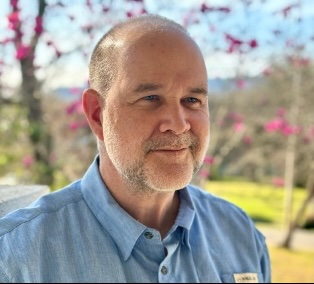The Community God
OPINION —
There’s nothing in the biblical witness like the prayer that Jesus gave His disciples. It is located in the heart of the Sermon on the Mount (Matthew 6:9-13), yet in terms of the overall organizational flow of Jesus’ message, the prayer is somewhat of a deviation. The central idea of 6:1-18 is the importance of not doing things to be seen by others (v. 1). He starts with the act of giving (v. 2-4), ends up with fasting (v. 16-18) and mentions prayer in the middle. The model prayer does not further this line of thought, so in a sense, it is an excursion, a side trip from the main path.
But what a trip!
The prayer is remarkably brief — 53 words in the NIV. After talking about not praying to be seen by others (v. 5-6), Jesus adds that the disciples were not to be like the pagans (“do not keep on babbling like pagans, for they think they will be heard for their many words”). From this, He segues into an example of what prayer should look like.
This prayer is intended to be a model for us. “This, then, is how you should pray” (v. 9). From the rest of the NT, it seems clear His intent wasn’t that His followers engage in a verbatim repetition of these words (though there is nothing wrong with that), but more that His words be taken as a framework for prayer—honoring God, praying for His will to be done, asking for our daily bread, seeking forgiveness, and aid in temptation. This is not everything there is to prayer, but it’s a solid basis for it.
And it is dripping with powerful truths for today.
Think about the first two words of the prayer — “Our Father.” It’s easy to overlook them, but I think they say something of fundamental importance for the disciple. Jesus could have started the prayer with “Father” or “My Father,” but He didn’t. He purposely chose to use a plural pronoun.
That’s interesting, don’t you think?
It’s also purposeful. Using “Our” reminds us that we don’t come to God as isolated individuals, we come as part of the human family of which He is the Father (Hebrews 12:9). The phrase “Our Father” recognizes Him and the extent of His Fatherhood.
It also reminds us that since we don’t live in a vacuum, we shouldn’t pray in one either. In a shocking blow to the 21st century mindset, the model prayer does not have a single “I” in it — it is all plural pronouns — nine of them.
In the end though, isn’t this what we need? A God who calls us away from self and into the recognition and acknowledgement of the world around us—a God who refuses to be pegged as an individual or tribal God but is rather the God of all. “Our Father” reminds us that every person on this planet is known intimately and loved ultimately by God. “God loves everyone but I’m His favorite,” is just childish nonsense spoken by those who don’t understand God.
“Our Father” sets the context for healthy prayer!
Bruce has written a book on the model prayer called Praying in the Reign. It is available through 21st Century Christian.


